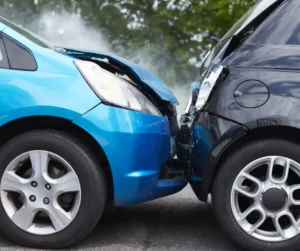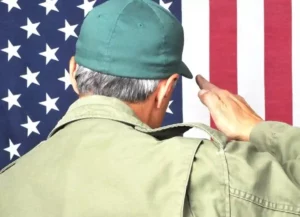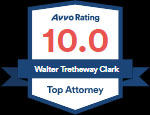Last week, an appellate court upheld the arbitration agreement in Uber’s terms of service—and every user should be concerned. The decision effectively bars customers from suing the company in court, and it prohibits class-action complaints. According to the arbitration clause in Uber’s terms of service, customers who register for the ridesharing company’s services agree to settle any disputes via arbitration. The appellate court ruling comes as a response to a lawsuit filed in 2015 claiming Uber participated in price fixing and violated antitrust law.
What was the Uber Lawsuit About?
In December 2015, Spencer Meyer sued Uber CEO Travis Kalanick for price fixing. Meyer’s lawsuit claims that if Uber’s drivers are independent contractors—which the company claims they are—then they cannot conspire over what to charge customers, as that would be price fixing. However, the Uber app requires all of its drivers to set identical prices. Moreover, prices are determined by Uber’s algorithm, which includes surge pricing during peak times. Thus, the lawsuit alleges that Uber is a price fixing scheme that forces out competitors.
Uber Fights Back with Arbitration Clause
After being hit with the lawsuit, Uber’s attorneys argued that the case should be decided via arbitration, due to the company’s terms of agreement. According to Uber’s terms of service, all disputes must be settled via by an arbitrator.
When disputes are settled by a third-party arbitrator, the issue stays private. Additionally, the parties involved do not receive an explanation for whatever decision is reached. Arbitration was originally created as a way for companies to settle disputes between themselves without involving the courts. However, companies have been increasingly including arbitration agreements in their customer and employee contracts. Such agreements put employees and customers at a disadvantage while protecting companies from class action lawsuits.
Last year, New York judge Jed S. Rakoff overturned the provision of Uber’s customer agreement that required disputes to be resolved via an arbitrator. According to the judge, customers allegedly consented to the conditions without being explicitly asked to do so.
Most of us have probably mindlessly checked an “I agree to the terms of service” box at some point. Judge Rakoff’s ruling was mindful of that reality. The judge wrote that “the plaintiff here never agreed to waive his right to a jury trial or to submit to mandatory arbitration.”
Judge Rakoff has spoken out about arbitration agreements before. In an article for the New York Review of Books, Rakoff wrote that mandatory arbitration is one of the chief factors denying ordinary Americans their day in court.
Appeals Court Reinstates the Arbitration Provision
Last week, a federal appeals court reinstated Uber’s arbitration provision. The appeals court claims that Meyer could have read the terms of service if he wanted to. According to the appellate judges, “Courts around the country have recognized that [an] electronic ‘click’ can suffice to signify the acceptance of a contract.”
What Makes Arbitration So Unfair to Consumers?
Arbitrators can set their own standards for evidence, and they do not have to give an explanation for the decision they make. Additionally, arbitration agreements usually forbid class action complaints and punitive damages. It is also well known that major companies are typically return clients for arbitrators, whereas customers are not.
Are Uber’s Terms of Service Easy to Understand?
According to Judge Rakoff, Uber’s “Terms of Service & Privacy Policy” are viewable if the user clicks a link from the registration page. That page then leads the user to another page, where they have to click a second link to actually open the terms of service document. However, clicking these links is not required to check the box and register. Thus, a user can agree to the terms of service without even viewing them at all.
Once the terms are accessed, Rakoff describes them as “nine pages of highly legalistic language that no ordinary customer could be expected to understand.” What’s more, it is nearly impossible to read the tiny print of the agreement on a smartphone screen. And as Uber’s business model is built around its smartphone app, users cannot be expected to read the terms elsewhere. Thus, a user would only have knowledge of Uber’s arbitration agreement after clicking multiple links to access the company’s terms of service, as well as sifting through roughly 6,000 words of legal terminology.
Nevertheless, the appellate court has ruled in the ridesharing company’s favor on this matter. The conclusion written by Appeals Judge Denny Chin says the arbitration agreement was accessible enough. The question remains: If the terms are fair to all parties, why make it so complex for the everyday user to access and understand them?
“Last week’s ruling is a serious blow to consumer rights. These types of hidden arbitration agreements are unfair and should be forbidden,” said Attorney Walter Clark, founder of Walter Clark Legal Group.
Our firm has been handling personal injury cases throughout the California Low Desert and High Desert communities for over 30 years. With a 95% success rate, the California personal injury attorneys at Walter Clark Legal Group will fight to hold those responsible for your loss accountable and win compensation to cover medical bills, lost wages, and pain and suffering. If you have been injured and want to discuss your legal options, contact us today for a free consultation with an experienced personal injury lawyer. We have offices in Indio, Rancho Mirage, Victorville, and Yucca Valley and represent clients through the entire California Low Desert and High Desert communities.
DISCLAIMER: The Walter Clark Legal Group blog is intended for general information purposes only and is not intended as legal or medical advice. References to laws are based on general legal practices and vary by location. Information reported comes from secondary news sources. We do handle these types of cases, but whether or not the individuals and/or loved ones involved in these accidents choose to be represented by a law firm is a personal choice we respect. Should you find any of the information incorrect, we welcome you to contact us with corrections.
- What To Do If You Have Been Injured At A Concert In California? Mar 27,2024
- Walter Clark Legal Group Reimburses Thanksgiving Ride Fares Nov 14,2023
- Walter Clark Legal Group Donates Backpacks to Booker T. Washington Elementary School Aug 22,2023
- Walter Clark Legal Group Donates Backpacks to Underserved Students Aug 22,2023
- Walter Clark Legal Group Reimburses Labor Day Ride Fares Aug 21,2023
- 2023 Safe Ride Home Program Jun 21,2023





















